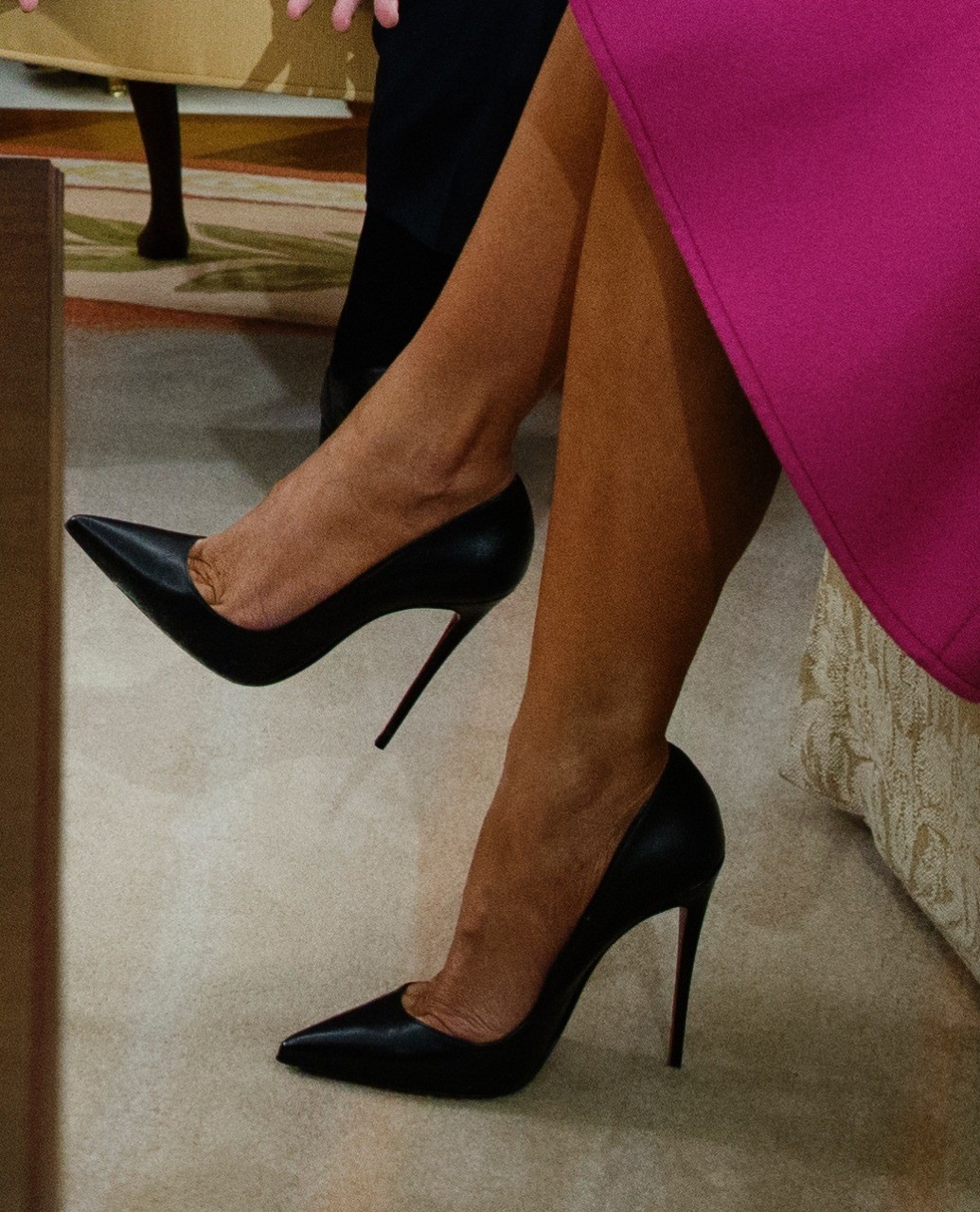So THIS is the reason Melania would not be welcome in Carmel!




Posted on 04/14/2025 2:02:30 PM PDT by nickcarraway
Jessica Canning often begins her day at a beach on the Central Coast, walking her Cavalier King Charles spaniel on pristine white sand. But when the second-generation Carmel resident ends the day strolling the village in high heels, she knows to pack her permit.
“I like to say that I am ‘Licensed to Heel,’” she told SFGATE via email.
Video above of another controversial Carmel law.
The reason for the formal license is due to a 1963 law that banned shoes with spiked heels more than 2 inches high and a base of less than 1 square inch.
At the time, the city said that prohibiting such footwear preserved the California city’s “urban forest character” since maintaining the Monterey pines and other native trees “involves some informality in the lighting, location and surfacing of street and sidewalk areas, which in turn involves greater risk to those wearing high heeled shoes more adaptable to formal city life.”
Carmel police Chief Paul Tomasi told SFGATE in an email that “high heels are particularly dangerous on our sidewalks as they can be uneven in many places.”
The trouble with this cryptic municipal code, although more lampooned than enforced, is that it targets a very specific group of individuals. Namely, anyone who wears high heels. And while it seems largely unenforced — Tomasi indicated that no citations have been issued for at least 40 years — there hasn’t been enough opposition to propose a reversal. “We don’t really take it seriously,” he wrote. “It is a fun thing for people to come and get a permit, though.”
The regulation is among other obscure fashion laws in California. Some remain on the books, while others have been overturned, but these rules expose a prejudice in the state’s past, such as a longstanding law that once banned anyone in San Francisco from wearing garb typical for the other sex.
Other laws are outright odd. In the small border town of Blythe, two hours from Palm Springs, a municipal code once barred people from wearing cowboy boots in the desert unless they met certain criteria. Mallory Crecelius, the city clerk, wrote in an email that the city law had required locals to “own at least two heads of cattle to wear boots.”
These laws seem insubstantial, if not arcane. Some have even grown into popular myths, such as an erroneous claim that one of California’s laws makes it illegal for women to drive a vehicle while wearing a housecoat. (Kimberly Sim, librarian at the Witkin State Law Library in Sacramento, confirmed it’s unsubstantiated.)
However, other prohibitions continue to exist and seem tailed toward discrimination, especially against women or marginalized groups.
Policing gender expression dates back to 19th-century San Francisco, where it was illegal to wear clothing “not belonging to or usually worn by persons of his or her sex,” as written in the San Francisco Police Code. In the book “Arresting Dress,” author Clare Sears shared the story of Eliza DeWolf, who was arrested in 1866 for the “tremendous sensation” she caused by wearing pants, men’s boots and a riding jacket while walking down the streets of San Francisco.
As Sears wrote in 2014, throughout the mid-20th century, city police departments across the country “used cross-dressing laws to harass queer and transgender communities.” It was only in 1974 that Thomas M. O’Connor, city attorney for San Francisco, amended the code to allow for wearing clothing more commonly worn by the opposite sex.
That means drag queen culture in San Francisco, which reverberates from the streets to the beach, has technically been legal for only about five decades.
No tranny has filed suit against Carmel yet? It’s violence against them if they have to get a license to wear high heels. (/S)
I may have this backward or wrong but I recall there was a blue law that prohibited one from New Hampshire from shooting a Vermonter...
on Sunday.
So THIS is the reason Melania would not be welcome in Carmel!




Haha, yeah my husband hates when I ask him to break out the tux
Disclaimer: Opinions posted on Free Republic are those of the individual posters and do not necessarily represent the opinion of Free Republic or its management. All materials posted herein are protected by copyright law and the exemption for fair use of copyrighted works.